Ori and the Will of the Wisps is taking serious inspiration from Zelda with its new focus on fluid combat
Ori's latest adventure borrows heavily from Hollow Knight and Zelda and is all the better for it
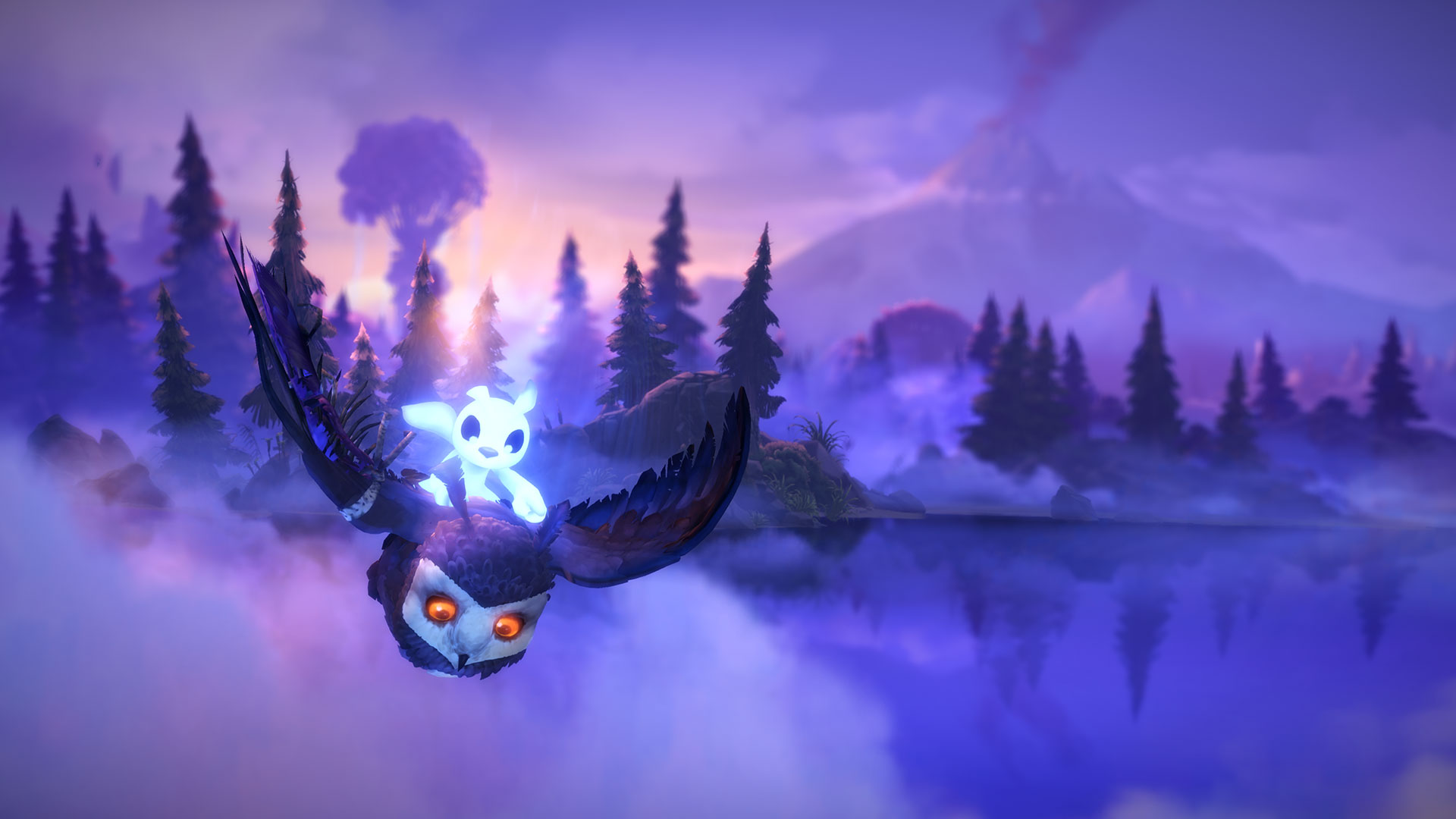
The world might not be ending this time around, but that doesn't mean there's isn't room for anguish and despair for our adorable little hero. Developer Moon Studios is here to make you cry, again, with the sequel to the 2015 Xbox One / PC exclusive. Ori and the Will of the Wisps rejoins our hero sans his Sein powers and taking care of a brand new friend. The little owl is trying to find his wings, but with one of them damaged it's not exactly plain sailing - and that's only emphasised by their first soar being brutally cut short by a thunderstorm, sending Ori and his feathery pal hurtling down into a deep and dangerous part of the familiar Nibel forest, cut off from each other and their home. After a few, long moments, Ori arises. Alone. He's found himself in this unfamiliar place, and things are about to get a lot more treacherous.
Thankfully though, Ori isn't going out into this wilderness completely unarmed. This time around there's a much bigger emphasis on combat, and because of that, there are clear similarities between Ori's latest adventure and Hollow Knight. That's not exactly surprising when these are both games that fall under the Metroidvania genre banner, and will definitely help the game appeal to an even wider audience. But, it still might raise a few eyebrows.
Ori's gone wild
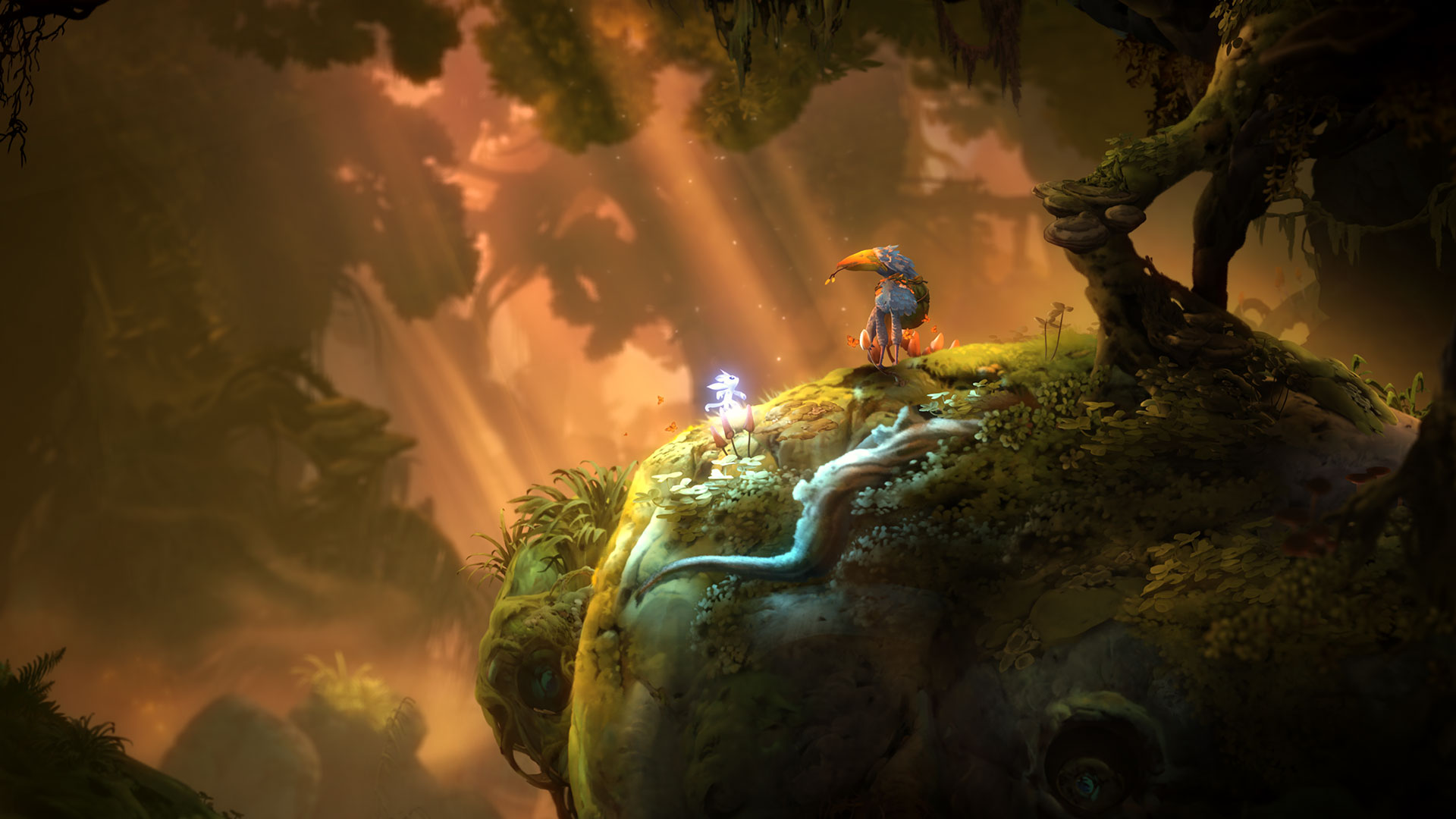
For a start, the more linear skill tree of the original game has been removed, and instead replaced with a new Spirit Shard system that lets you swap out skills on the fly. These range from shards that give you enhanced damage and defense, to the ability to stick to walls that you jump on. With the option to have three active at any time, it's a case of juggling what you need at any given time. Combining these with equally interchangeable weaponry makes for a seriously customisable loadout. In the two or so hours of the game I got to play, I start out with a very Hollow Knight-esque weapon known as the Blade of Light and end up switching in a bow and arrow, a shuriken-like attack and the option to regenerate some health.
"We took more of a Zelda influence, in terms of combat and even character progression, and really influenced the gameplay with spirit weapons and melee combat, and maybe perhaps even abilities that require precision and aiming," explains Daniel Smith, producer at Xbox Game Studios, who's been working with Moon
But what's amazing is that despite all of these new additions, the gameplay never drags. It's all effortlessly smooth, allowing you to chain traversal and combat with ease, even using your light blade as a kind of baseball bat, forcing enemies away from you in all sorts of directions.
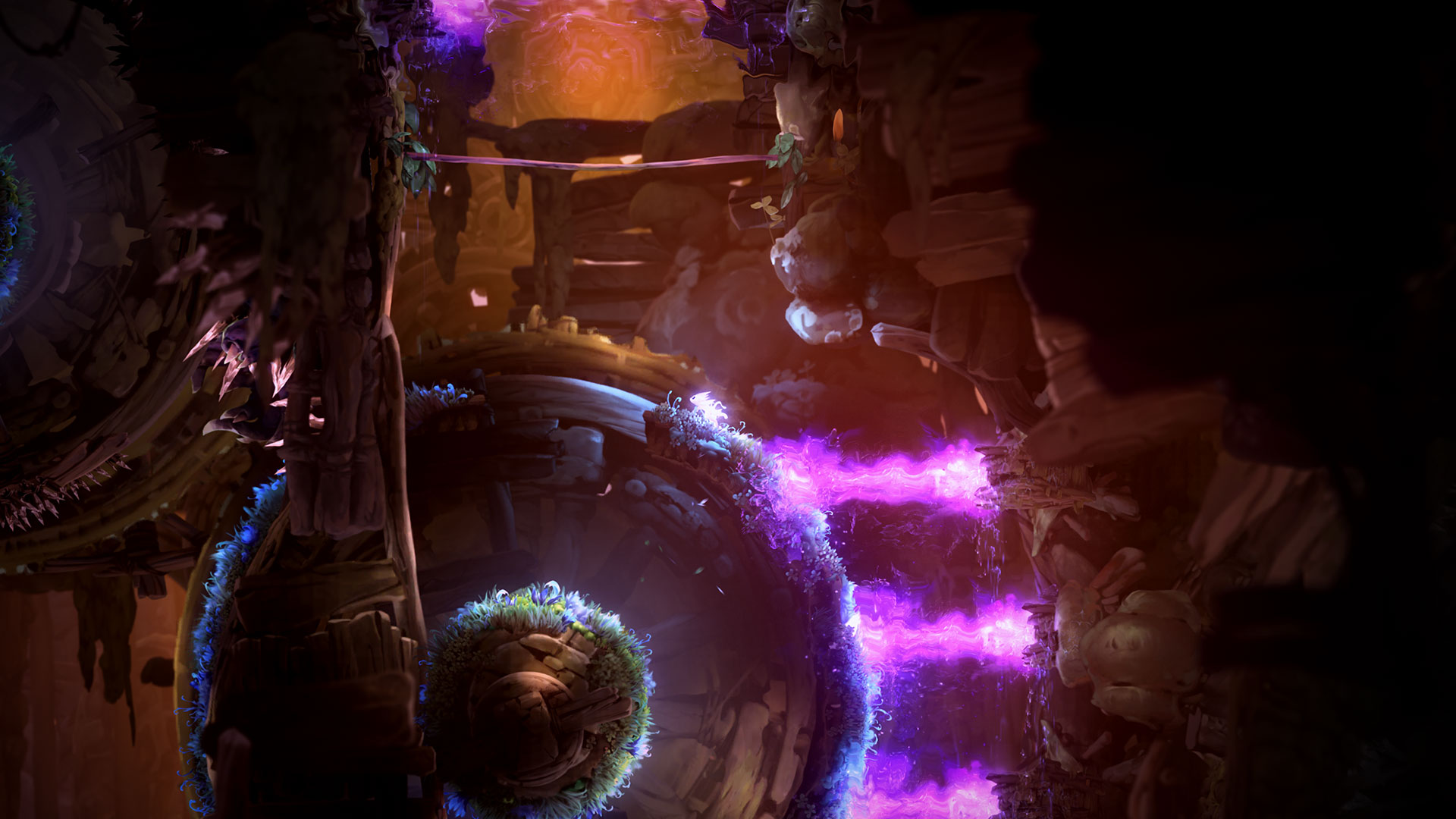
"I think the biggest challenge there was, Ori has very nimble and had very fluid movement. So, how can we make the gameplay feel as fluid and quick and nimble as it did, but with these melee weapons? A lot of ideas were scrapped. A lot of ideas were polished and refined. Now, I think we’re at a point where I really feel quite proud of the fact that there’s this new combat system but you really feel as quick as you ever did in Blind Forest."
You're going to want to feel speedy too, as there's plenty an enemy encounter to be had. Think huge snarling wolves or a stag beetle the size of a small horse and you get the idea. It all manages to make you feel very, very small as Ori, which only heightens the emotional drama. Having all your combat unlocks available on a slick ability wheel really helps that too, allowing you to switch weapons mid-combo, making all your skills feels very accessible, even mid-boss fight.
Sign up to the GamesRadar+ Newsletter
Weekly digests, tales from the communities you love, and more
Help but not hinder
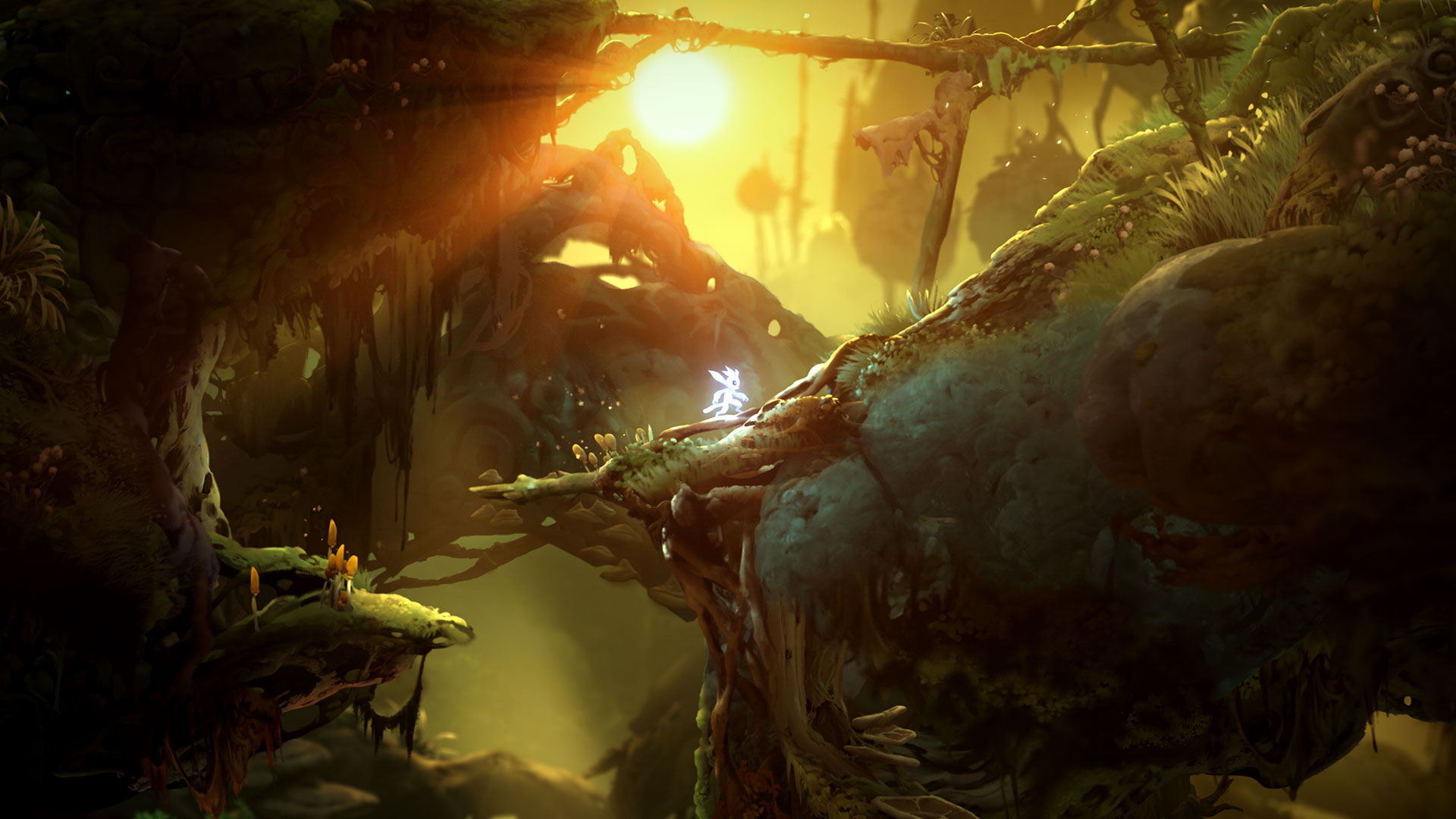
But as much as Ori and the Will of the Wisps is about making combat just as important as platforming, it's also about making it more accessible.
"We have the greatest community in the world. We listen very intently to what everyone has to say in terms of what they loved, and what things were frustrating," explains Smith.
That includes elements like the soul link saving functionality, which has been scrapped in favour of an autosave system for Will of the Wisps. There are three overall difficulty levels to choose from (although this was added in Ori and the Blind Forest: Definitive Edition too), and you can choose to abandon an escape run that's just frustrating you right now.
"We're trying to give as many options to players to really tailor and customise their experience as possible. In Blind Forest, we were really more or less dictating the way people should engage with the game. You unlock this ability, and everyone does, right? You have to use it. It’s on your controller now. Now, we’re really providing players with the tools they want to use."
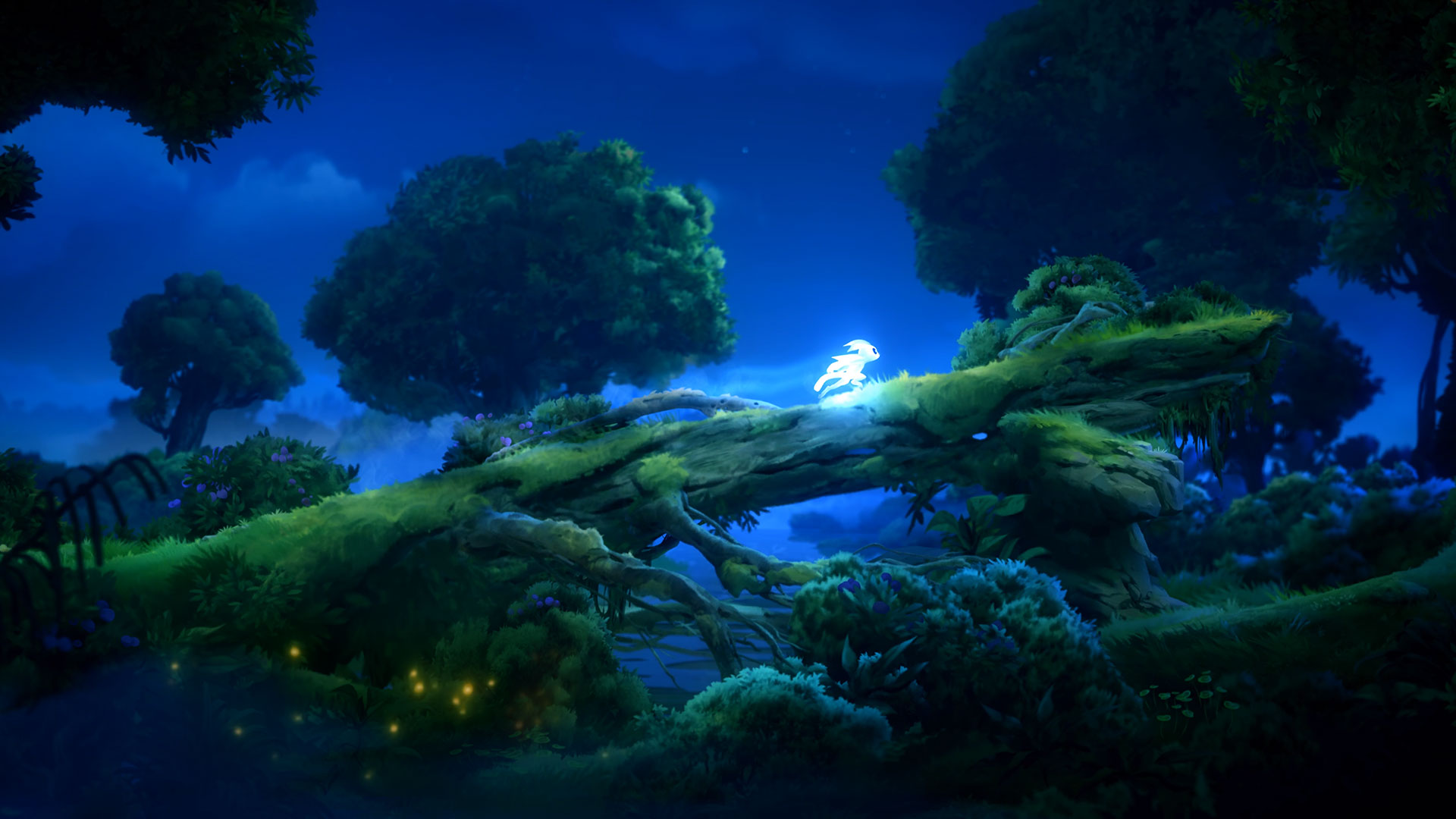
Don't let that all make you think that Ori and the Will of the Wisps is a pushover though. I personally spent a good five minutes dealing with a particularly aggressive pair of mosquitos blocking my way through to the next waypoint, and there are plenty of puzzles to solve and environments to explore. It all retains the same look and feel of the original game too.
And dear lord, it is beautiful. Ori's latest venture is a treat for eyes and ears. The game has gently swapped from a 2D to 3D aesthetic, making for some seriously impactful boss fights and more environmental storytelling than we saw in the previous games, but still manages to look like a Studio Ghibli film with its rich, deep and gentle visuals.
In essence, Ori and the Will of the Wisps is everything you loved about its predecessor - glorious visuals, emotional story, tough platforming, and Metroidvania exploration - but with added extras. The focus on combat blends well with the existing mechanics, and the move away from more linear upgrade systems keeps it feeling fresh. NPCs, and an ever-growing hub world help draw the connections between Hollow Knight and Zelda even more, but it all helps. This feels like a celebration of all things Metroidvania, packaged up in a way that should appeal to everyone.

Sam Loveridge is the Brand Director and former Global Editor-in-Chief of GamesRadar. She joined the team in August 2017. Sam came to GamesRadar after working at TrustedReviews, Digital Spy, and Fandom, following the completion of an MA in Journalism. In her time, she's also had appearances on The Guardian, BBC, and more. Her experience has seen her cover console and PC games, along with gaming hardware, for a decade, and for GamesRadar, she's in charge of the site's overall direction, managing the team, and making sure it's the best it can be. Her gaming passions lie with weird simulation games, big open-world RPGs, and beautifully crafted indies. She plays across all platforms, and specializes in titles like Pokemon, Assassin's Creed, The Sims, and more. Basically, she loves all games that aren't sports or fighting titles! In her spare time, Sam likes to live like Stardew Valley by cooking and baking, growing vegetables, and enjoying life in the countryside.


